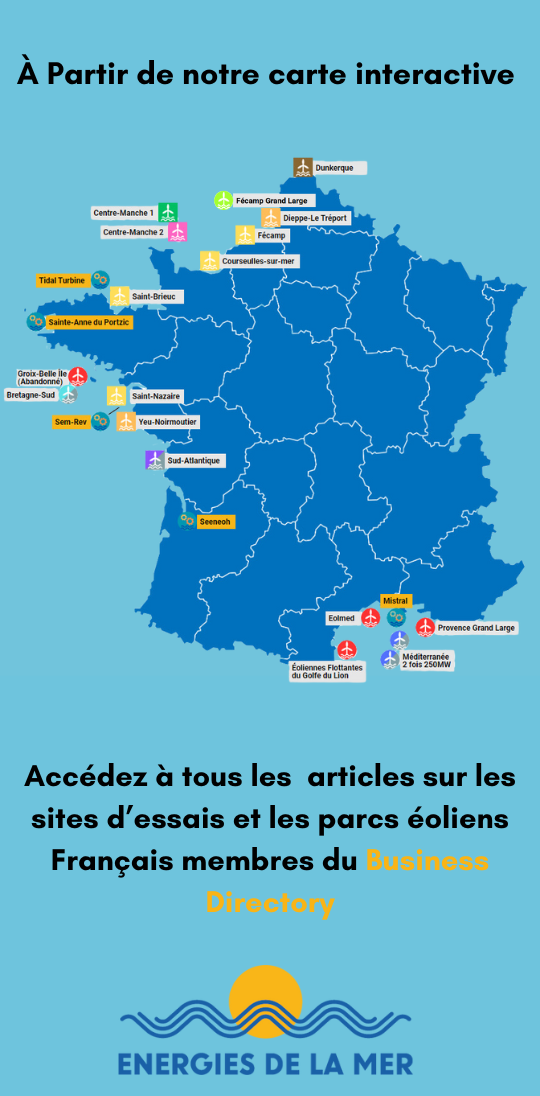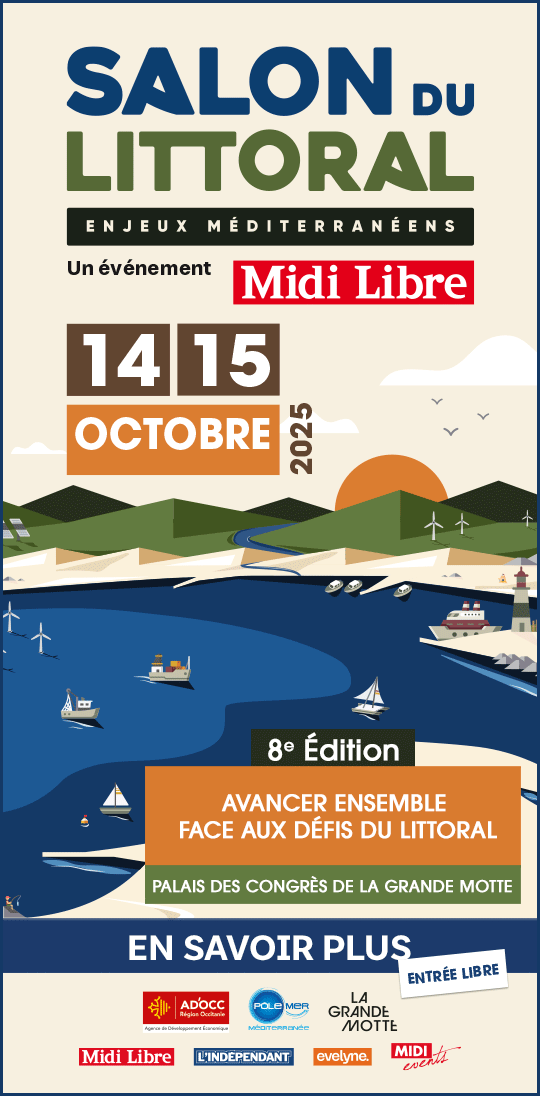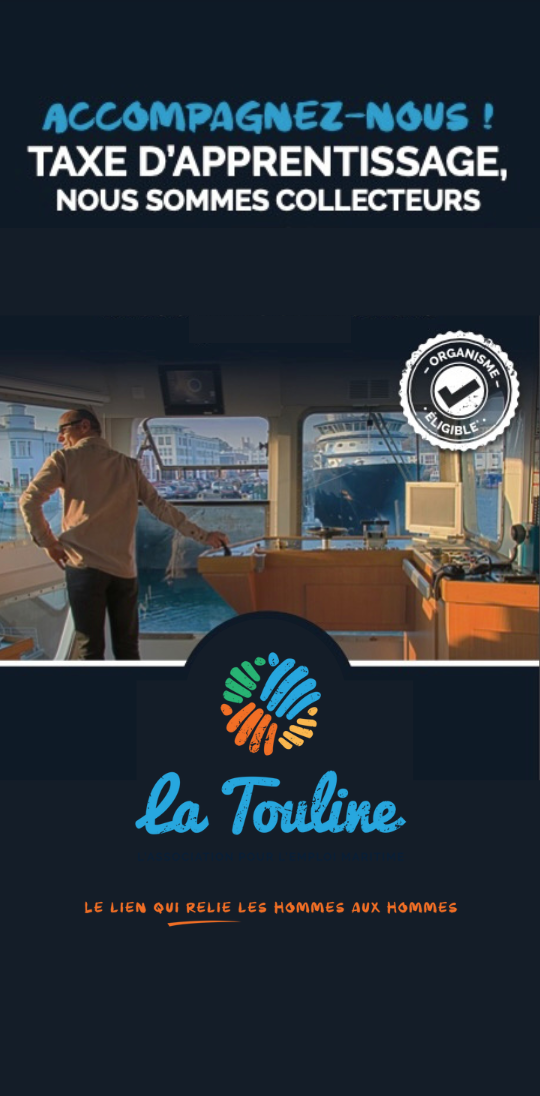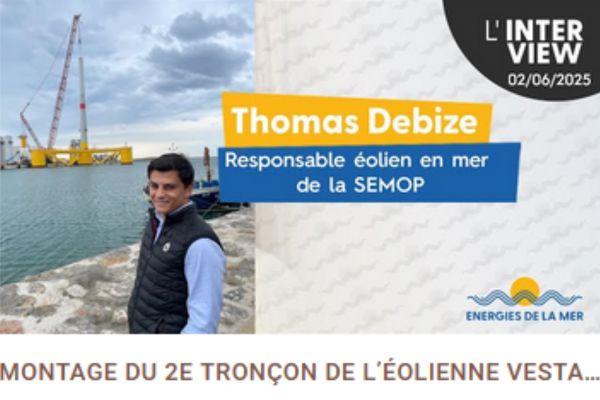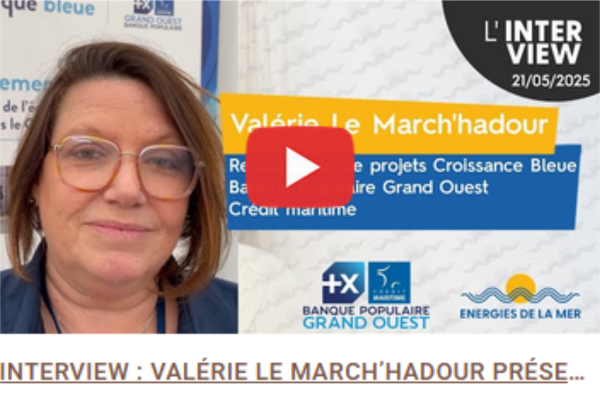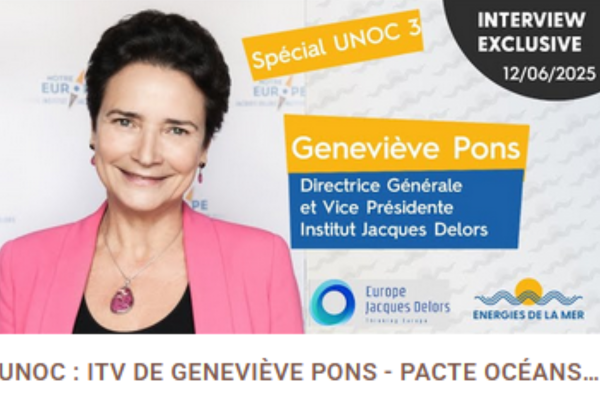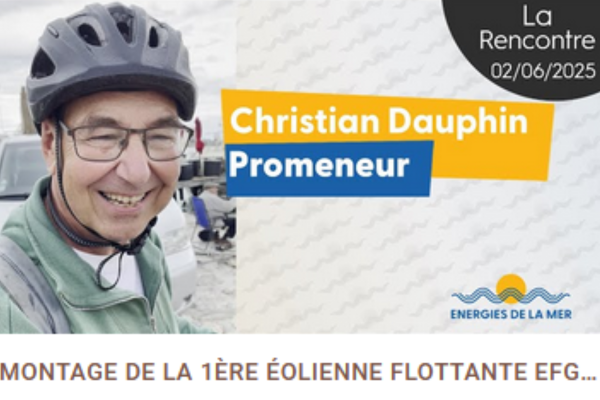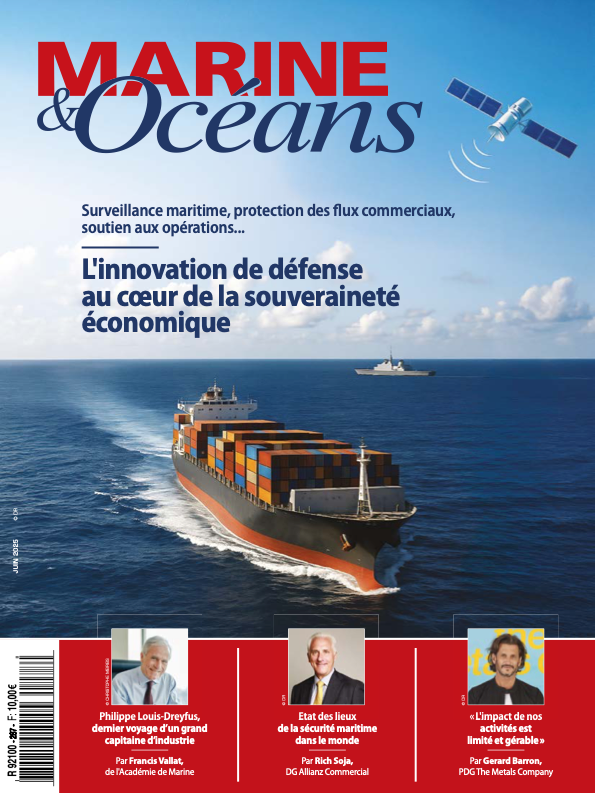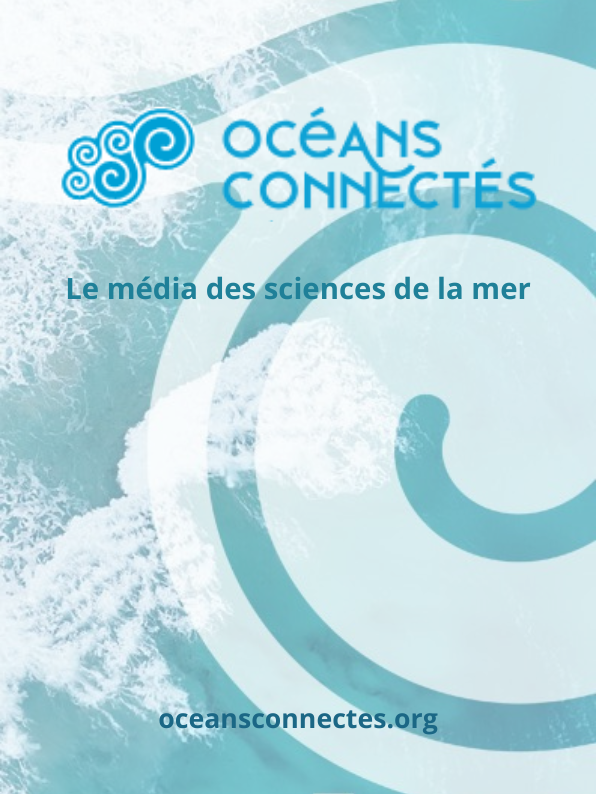France – Mardi 22/10/2019 – energiesdelamer.eu. Ancre – Colloque des Doctorants – 3ème intervenant : Alexis Cousin
Floating offshore wind turbines present many advantages but a major limitation is their cost.
The work of this thesis is to find a design that minimizes the cost of the anchoring system [1]. To be acceptable, the design must respect certain standards ensuring the reliabiliy of the structure. Specifically, the anchoring system must restrain the movement of the floating platform to allow the wind turbine to run properly, avoid compression in the mooring lines and withstand the damage caused by fatigue. All these constraints inherit the random characteristic of the marine conditions, of the material properties, and of the installation configuration. Therefore, we face an optimization problem with a deterministic cost function and three probabilistic constraints. Having to evaluate the failure probabilities at each loop of the optimization algorithm is the main difficulty of this type of problem. A na¨ıve approach such as the Monte Carlo method requires computing with a time consuming simulator, many realizations of quantities such as the pitch, the tension and the fatigue to calculate each failure probability. Unfortunately, the computation cost of a single realization of these objects is too high to apply such basic approaches.
We propose a methodology that takes into account the nature of the constraints to solve the problem in a reasonable time. First, we will use a frequency approach for the fatigue constraint and the Extreme Value Theory [2] for the other two constraints to formulate an equivalent problem but easier to solve. We will then tackle this latter problem with the contribution of metamodels coupled with the Monte-Carlo method [3, 4].
We have applied the proposed methodology to an academic case with the same properties as the real wind turbine problem and the results are promising.
Agenda des événements sélectionnés par energiesdelamer.eu : Journée Doctoriale sur les thématiques du GP5 de l’ANCRE 23/10/2019
Points de repère
Références :
[1] A. Robertson, J. Jonkman, M. Masciola, H. Song, A. Goupee, A. Coulling, and C. Luan. Definition of the Semisubmersible Floating System for Phase II of OC4. NREL Technical report NREL/TP-5000-60601, 2012.
[2] M.R. Leadbetter, G. Lindgren, and H. Rootz´en. Extremes and Related Properties of Random Sequences and Processes. Springer series in statistics. Springer-Verlag, 1983.
[3] V. Dubourg. Adaptive surrogate models for reliability analysis and reliability-based design optimization. PhD thesis, Universit´e Blaise Pascal, Clermont-Ferrand, France, 2011.
[4] M. Moustapha and B. Sudret. Surrogate-assisted reliability-based design optimization: a survey and a new general framework. arXiv e-prints, page arXiv:1901.03311, 2019.
Publicités Google :

